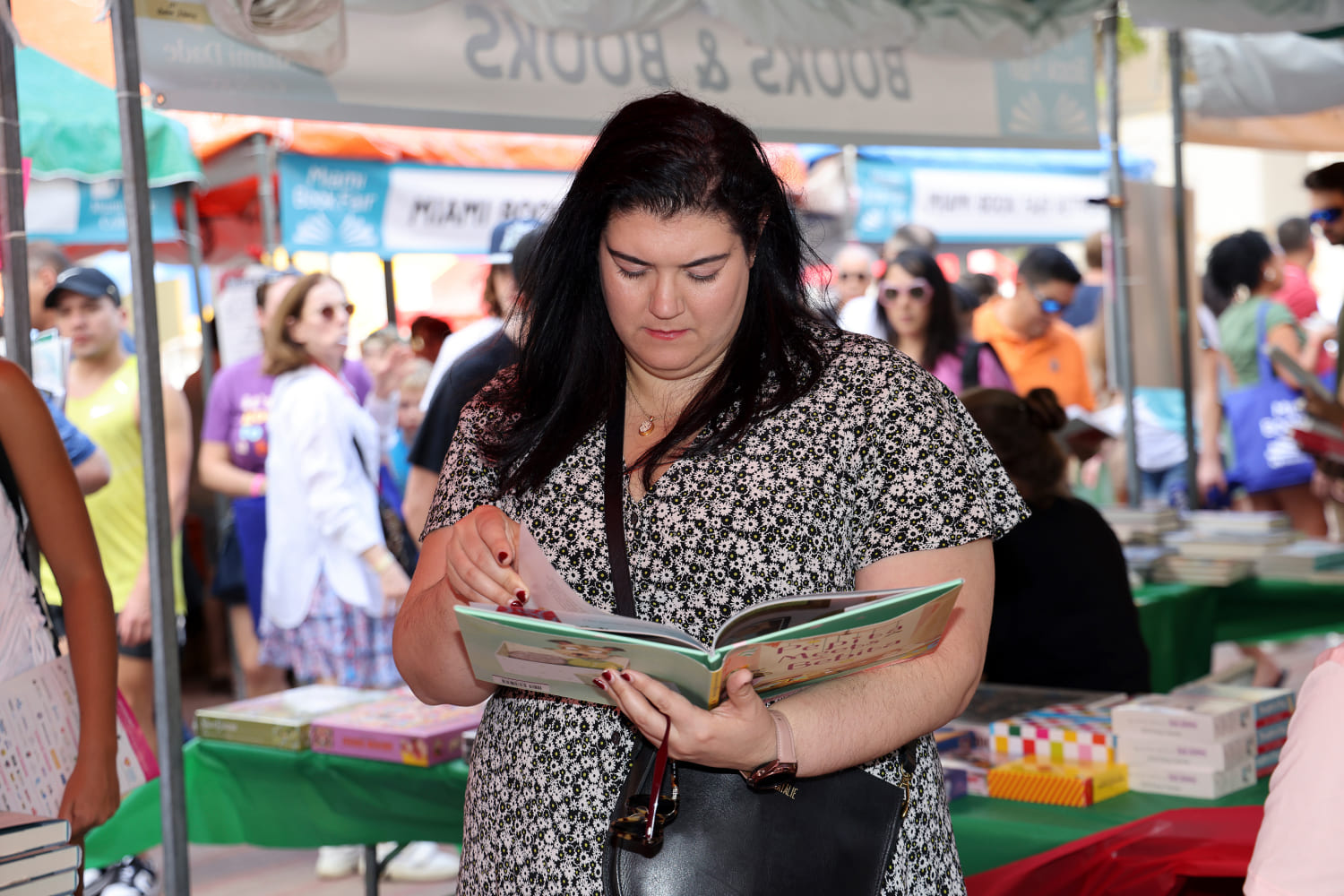
Miami Dade College's Miami Book Fair , now in its 41st year, takes place Sunday, Nov. 17 through Sunday, Nov. 24, on the Wolfsonian campus in downtown Miami.
This year's Book Fair features both big name literary and celebrity authors and local ones such as Paul George and Henry Green, "Jewish Miami Beach," Lisandro Perez, "The House on G Street: A Cuban Family Saga," Edwidge Danticat, "We're Alone: Essays," and Dave Barry, "The Swamp."
We spoke to three: Jen Karetnick, "Inheritance with a High Error Rate," Romina Garber, "Castle of the Cursed," and local historian and adventurer, Cesar A. Becerra on his latest non-fiction work, "The Kaimiloa Project."
Cesar A. Becerra, "The Kaimiloa Project"
Becerra will appear on a panel with the authors of "Jewish Miami Beach," Paul George and Henry Green, at 11 a.m., Sunday, Nov. 24 in the MAGIC Screening Room, Building 8, first floor, 300 NE Second Ave., Miami.
Making a return appearance to MBF is Miami historian, author and adventurer, Cesar A. Becerra, who will present his latest and fifth book, "The Kaimiloa Project," on the centennial anniversary of the ship's voyage.
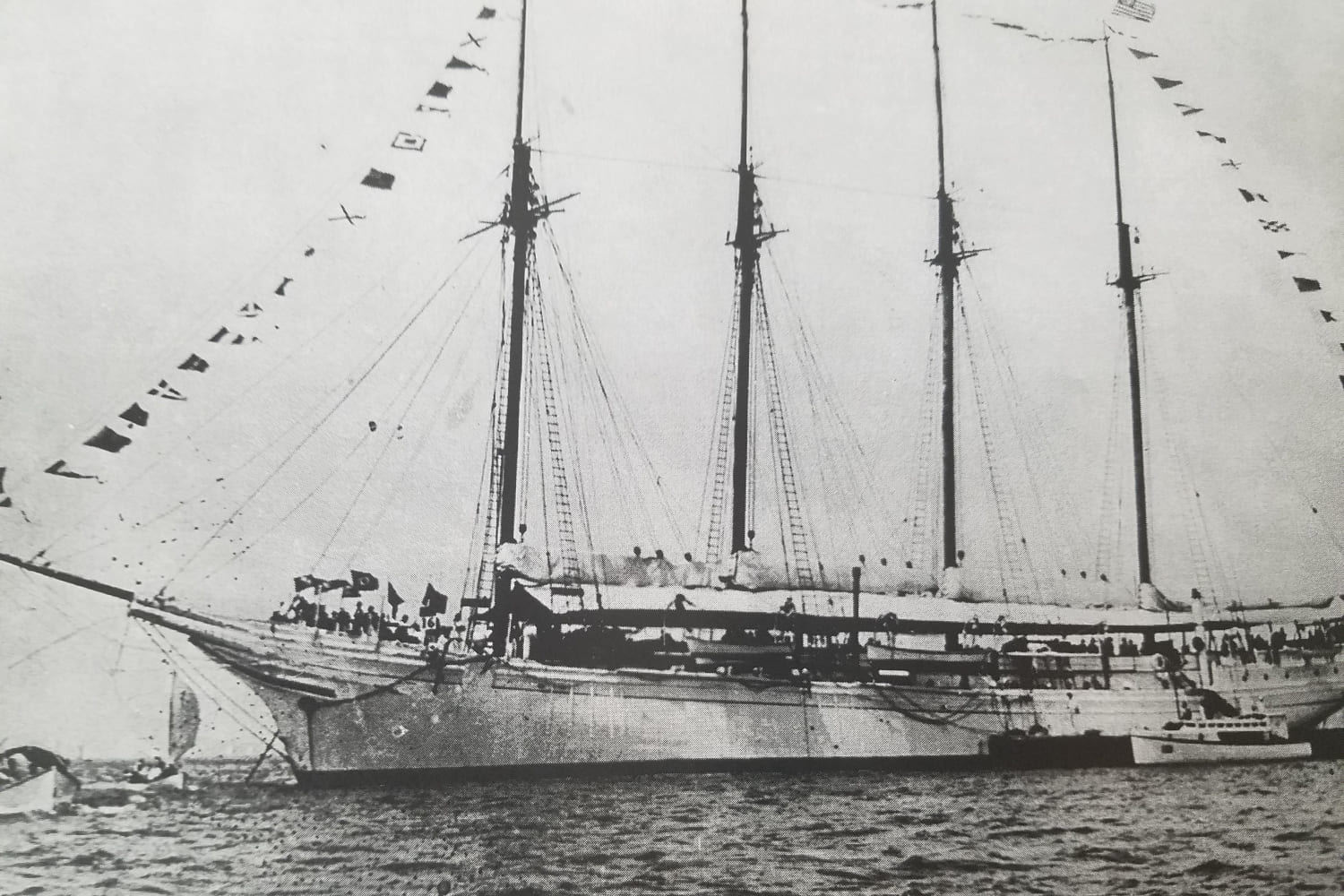
The SS Kaimiloa's life ended in Hong Kong when it was caught in a hurricane in Kowloon Bay.
In the Hawaiian language, Kaimiloa means "one who seeks afar," or explorer.
Becerra, a self-described modern-day nomad, is the author of half a dozen books – including his last one, "Orange Blossom 2.0," which he presented at MBF in 2021.
It recounts the story of Mary Brickell ("Miami's Other Mother") and the founding of the city. His other books detail his experience hiking the Appalachian Trail and the logging history of the Big Cypress Preserve. He is the former publisher of The Everglade Magazine.
In 1999, he drove through 50 states in a Malibu classic station wagon painted in an American flag motif and was featured on the Travel Channel. He spent 14 summers walking from Key West to Arizona in segments.
He spoke about his latest book by phone from Los Angeles, before giving a talk to the Pacific Mariners Yacht Club and setting sail on a 16-day cruise, where he was to be the guest lecturer.
"I'm very excited about this book," says Becerra. "I'll be speaking about the ship and its voyage a week to the day after the ship left on its fourth journey."
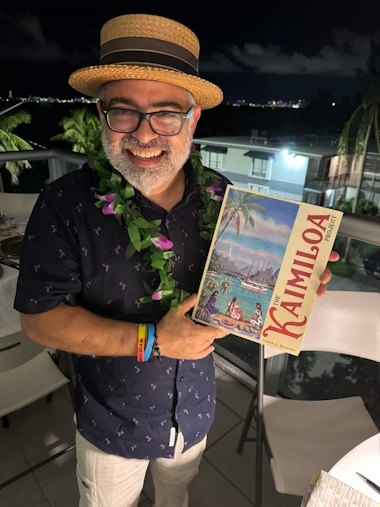
Cesar A. Beccera, author of "The Kaimiola Project."
In 1924, the SS Kaimiloa traveled the South Seas carrying Miami city clerk, Medford Ross Kellum, who was related to the Brickell family by marriage.
Kellum retrofitted a 230-foot long barkentine ship called The Luzon, that sailed from San Francisco to the Philippines from 1900 to 1924 carrying teak and mahogany, and adapted it into a motor yacht with two engines, modern conveniences and four masts towering 13 stories into the sky.
The newly-named SS Kaimaloa left San Francisco for Hawaii with 29 passengers and crew, including Kellum and his wife, six children, two dogs and most likely, a ship's cat.
Also on board were six scientists from the Bishop Museum in Honolulu, Hawaii who were gathering scientific data.
"It was the end of an innocent era," says Becerra. "It was the first time that a short wave communication was ever sent from ship to land." The year was 1925.
Becerra says the Dollar Steamship Line, one of the largest and most successful U.S. shipping firms in the 1920s, purchased the technology and put that radio on 20 of their ships.
"That technology saved thousands of lives during the first year," he says.
The SS Kaimiloa's life ended 11 years later in Hong Kong when it was caught in a hurricane in Kowloon Bay.
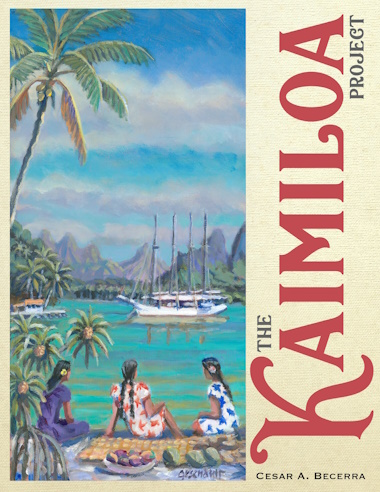
Cesar A Becerra's "The Kaimiloa Project"
For his research, Becerra traveled to Tahiti, New Zealand, Hawaii, San Francisco and Ogden, Utah following the ship's journey. The book took two years to complete, including ten months of dedicated writing.
Prone to distraction, Becerra hunkered down in South Hadley, Mass., ten days each month for ten months to write the book.
"There are too many distractions in Miami," he says.
As this is volume two in a series of three, Becerra still plans to research and write volumes one and three, a project which could take another six years to complete.
Romina Garber, "Castle of the Cursed"
Garber will speak about "Castle of the Cursed" in two panels beginning at 4 p.m. on Sunday, Nov. 24 in The Art Lab, Building 1, First Floor, Room 1101, 300 N.E. Second Ave., Miami
Young adult novelist, Romina Garber, born in Argentina and living in Miami, is blessed with a storybook life – from winning a Knight Ridder scholarship while in high school to getting hired by Tom Fiedler, then-editor of the Miami Herald who recruited her to write a weekly column, "College She Wrote," for the newspaper while she was at Harvard University.
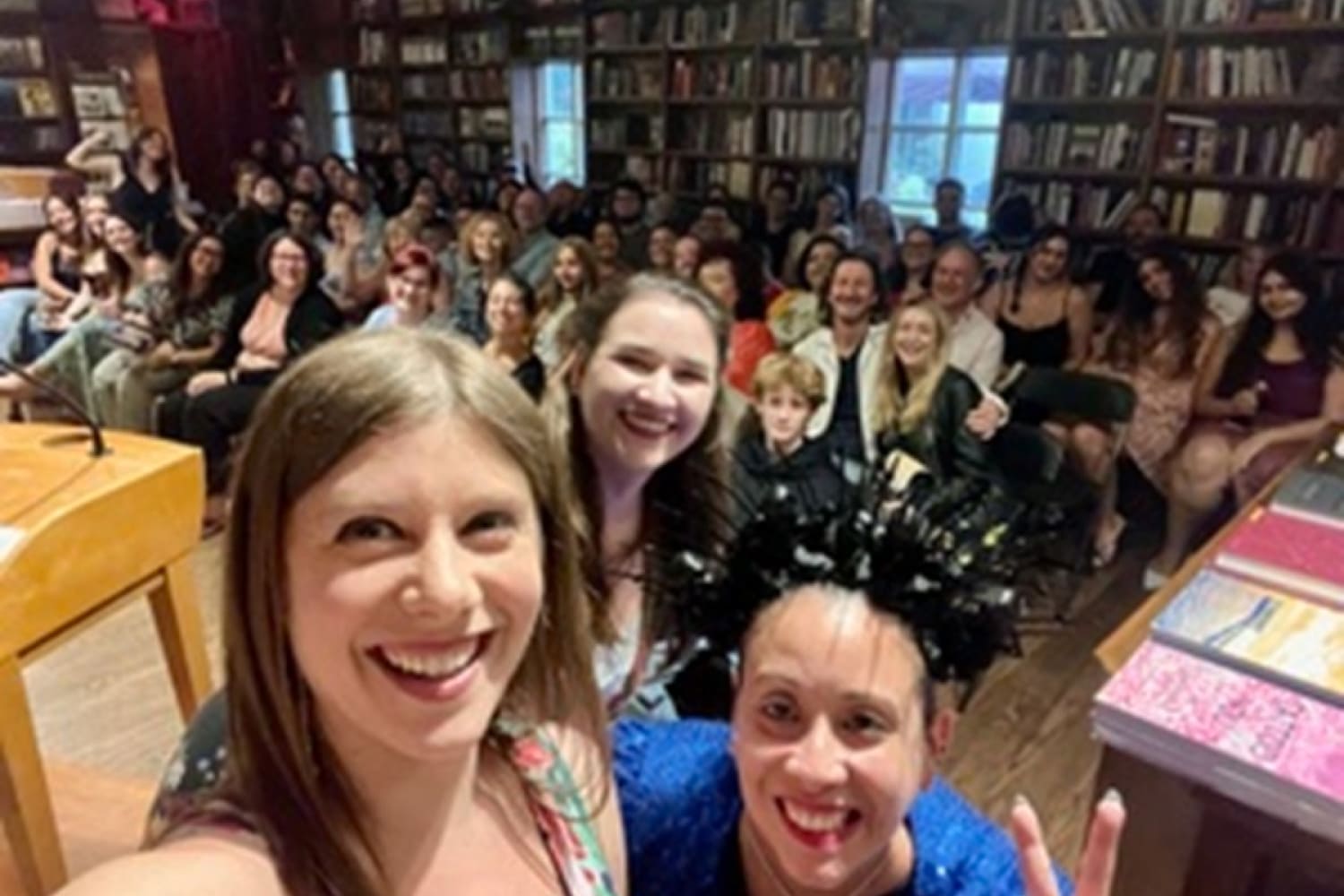
Author Romina Garber with fans at Books and Books
The column ran every Sunday across from Dave Barry's humor column and was syndicated nationally.
"That's when I realized I wanted to write for a teen market," says Garber. "Once I found my voice, I never looked back."
At the age of 9, Garber was inspired after reading Shel Silverstein's poetry collection, "Where the Sidewalk Ends," and says, "I found a new universe and the world exploded for me."
That same year, she penned her first poem, titled, "Si yo fuera la luz," which won first place in a writing contest.
Her seventh and latest book, "Castle of the Cursed," tells the story of Estela, who ends up living in her family's ancestral Spanish castle, after her parents mysteriously die.
Part mystery, part romance, the book deals with serious topics such as violence, kidnapping, death, depression and grief.
Always fascinated with gothic literature, Garber sought refuge in imaginary worlds and ancestral memories after immigrating to the U.S. with her family as a child and struggled to find her identity.
Her gothic themed books, "Lobizona," "Cazadora," the "Zodiac" quartet and "Book of My Heart," are a combination of Jayne Eyre meets Dracula, meets Beauty and the Beast with a touch of Veronica Mars.
"I live in my imagination," says Garber.
Garber works in long-hand, journaling to stimulate her creativity and once she's satisfied with her ideas, types up a synopsis.
She recently signed her book at the new Argentine bookstore, Quade, in the Aventura Mall and is heading to Spain this fall for the launch of the Spanish version of the book.
"Madrid is one of my favorite cities," she says. "It's a special moment to have ‘Castle of the Cursed' launch in Spain, where the book is set."
Garber embedded a clue to the book's mystery in a secret "Easter egg" – a hidden message in the case stamp. If you can unscramble it, you can solve the mystery.
She's hard at work on her latest book, tentatively titled, "The Last Vampire," – "Pride and Prejudice" meets "Twilight."
For Garber, her charmed life continues.
After moving back to Miami from Los Angeles where she lived for 13 years, she met her husband, Leonardo Marmol, a software engineer who had also moved back to Miami from California.
The couple met in 2020 on her second date on the dating app Hinge and after submitting a short essay on why she wanted to win a "wedding of her dreams," to radio station Y100 she won a wedding of her dreams.
They got married at the Fontainebleau Hotel in Miami Beach in 2022.
"We both have a very Miami story," she says.
Jen Karetnick, "Inheritance with a High Error Rate"
Karetnick will speak at 11 a.m. on Saturday, Nov. 23 with poets Ariel Francisco and David Kirby in Room 8303, Building 8, 3rd floor, 300 NE Second Ave., Miami
Miami poet, writer, author of 19 books, co-founder/co-curator of the not-for-profit organization, SWWIM (Supporting Women Writers in Miami), and co-editor of the daily online literary journal, SWWIM Every Day, Jen Karetnick is nothing if not busy.
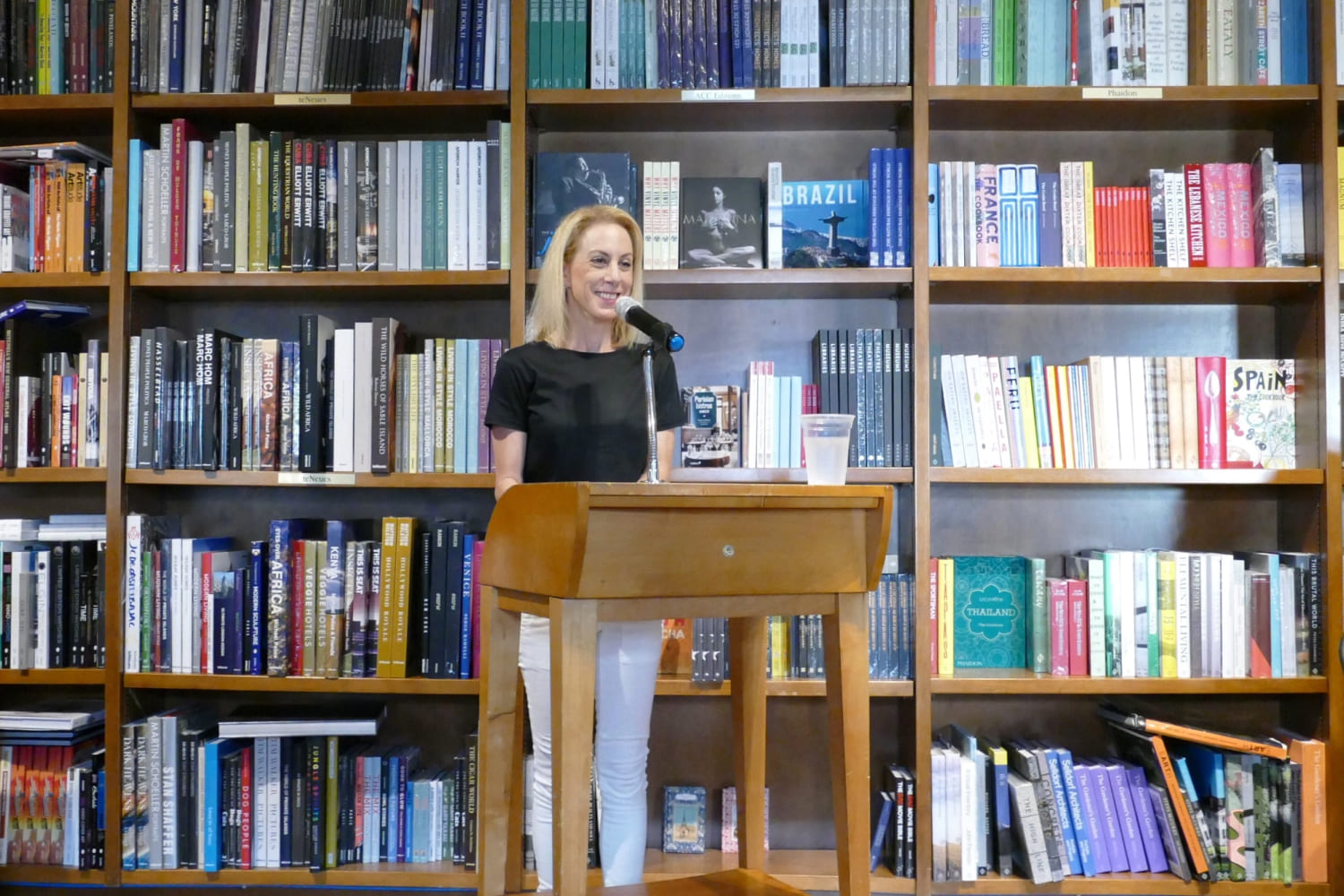
Jen Karetnick at Books and Books.
Her fifth book of poetry, "Inheritance with a High Error Rate" came out last January and won the 2022 Cider Press Review Book Award. The annual literary prize, offered by the Cider Press Review, recognizes outstanding poetry manuscripts. Winners receive a $1,500 cash prize, with their manuscripts published by Cider Press.
The title comes from her experience living on a mango farm in Miami with 14 mango trees and immersing herself in everything mango, including the fact that the edible stone fruit has a high error rate.
That means that a mango pit may produce a different variety of mango than its parent due to genetic diversity.
Karetnick also comes from a family with a history of genetic disease, so the title takes on a second, more personal meaning.
And, while there are plenty of poems about mangos in the book, there are poems on more serious subjects, such as climate change and about her recently deceased brother.
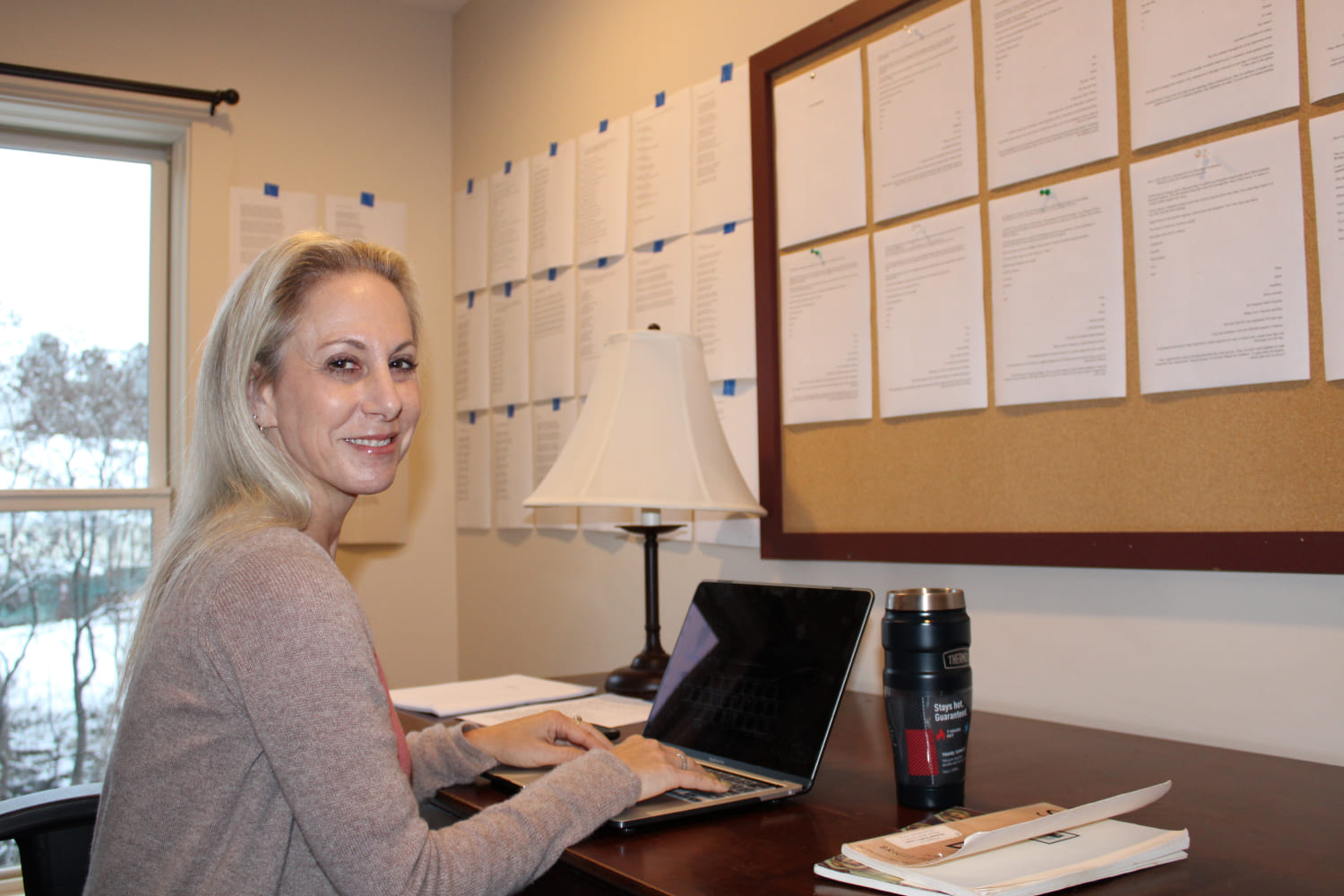
Author Jen Karetnick (Photo by Sarah Audsley)
The book is a companion book to her previous book "The Burning Where Breath Used to Be," the winner of the 2021 CIPA EVVY Award and finalist for the Eric Hoffer Poetry Award, and while the first expressed more anger, this book is about forgiveness.
"Midlife is a tricky place to be," says Karetnick, who is 56. "My two kids have left the nest, I've lost my brother and some friends; it's an awakening and moving on."
The last poem in the book, "Birkat HaBayit: A Woman Is a Bird When," is the first poem she wrote in her new home in El Portal, a bird sanctuary, where she lives with her husband, Jon Cross, a neurologist.
Karetnick believes that poetry, far from being elitist, is accessible and sought out by young people.
"More people are coming across it in their daily lives," she says, noting that poems are posted on public transit or in parks, or delivered to inboxes as a "poem-a-day."
"The more we expose folks to accessible poems that speak to the world we live in, the more they see how poetry provides a commonality of grief and a unique kind of solace," says Karetnick.
With so many achievements under her belt, including being a 2024 finalist in the National Poetry Series for her manuscript "Sensor Hypothesis," what's left for Karetnick to accomplish?
"There's so many things I still want to do," she says. "Write a memoir, write a novel, finish my fourth and latest poetry manuscript and write another cookbook. I still have plenty of ideas."
IF YOU GO:
- WHAT: Miami Dade College's 41st Miami Book Fair
- WHERE: Miami Dade College's(MDC) Wolfson Campus, 300 NE Second Ave., in downtown Miami. Miami Book Fair is on-line at miamibookfaironline.com.
- WHEN: Sunday, Nov. 17 to Sunday, Nov. 24. Various times for author events; Street Fair 10 a.m. to 7 p.m., Friday, Nov. 22, Saturday, Nov. 23 and Sunday, Nov. 24.
- TICKETS: Street Fair admission is free on Friday, then Saturday and Sunday, $12 at the gate. Teens 13 to 18, $5 and seniors 6 and older, $7. Children 12 and under are free. Free for Miami Dade College students, faculty and staff with valid ID.
- INFORMATION: Visit miamibookfair.com. Download the complete Miami Fair Book guide here. https://www.miamibookfair.com/downloadable-guide/
 MAIN MENU
MAIN MENU

